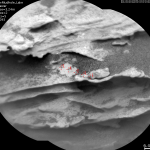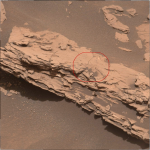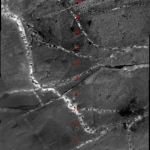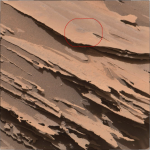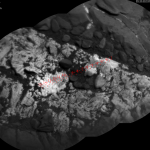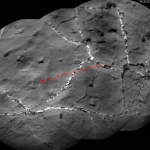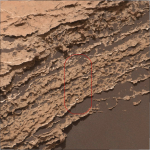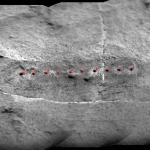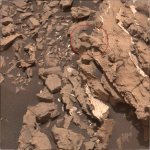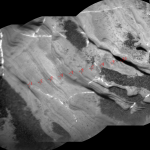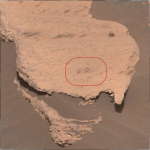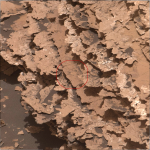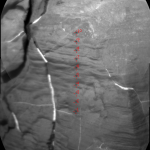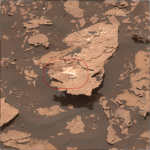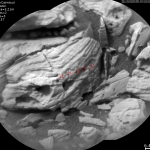ChemCam
on Mars
ChemCam at a glance
The ChemCam instrument is an international collaboration led by Los Alamos National Laboratory in the United States and the Institut de Recherche en Astrophysique et Planetologie in France.
ChemCam is on the Curiosity rover, exploring Gale Crater at Mars since 2012. It is used to perform rapid chemical and microscopic reconnaissance
Pulsed laser vaporizes targets up to 5 meters away. The spectrum of light from the laser-induced plasma reveals the chemical composition of the targets in seconds. ChemCam can detect most elements!
It also provides images of targets with high-resolution (can see a human hair 2 meters away).
[metaslider id=”353″]
Last 5 peer-reviewed ChemCam-related publications
(1) Thomas, N. H.; Ehlmann, B. L.; Meslin, P.-Y.; Rapin, W.; Anderson, D. E.; Rivera‐Hernández, F.; Forni, O.; Schröder, S.; Cousin, A.; Mangold, N.; et al. Mars Science Laboratory Observations of Chloride Salts in Gale Crater, Mars. Geophysical Research Letters2019, 46 (19), 10754–10763. https://doi.org/10.1029/2019GL082764.
(2) Rapin, W.; Ehlmann, B. L.; Dromart, G.; Schieber, J.; Thomas, N. H.; Fischer, W. W.; Fox, V. K.; Stein, N. T.; Nachon, M.; Clark, B. C.; et al. An Interval of High Salinity in Ancient Gale Crater Lake on Mars. Nat. Geosci.2019, 1–7. https://doi.org/10.1038/s41561-019-0458-8.
(3) Savijärvi, H.; McConnochie, T. H.; Harri, A.-M.; Paton, M. Water Vapor Mixing Ratios and Air Temperatures for Three Martian Years from Curiosity. Icarus2019, 326, 170–175. https://doi.org/10.1016/j.icarus.2019.03.020.
(4) Schröder, S.; Rammelkamp, K.; Vogt, D. S.; Gasnault, O.; Hübers, H.-W. Contribution of a Martian Atmosphere to Laser-Induced Breakdown Spectroscopy (LIBS) Data and Testing Its Emission Characteristics for Normalization Applications. Icarus2019, 325, 1–15. https://doi.org/10.1016/j.icarus.2019.02.017.
(5) Sun, V. Z.; Stack, K. M.; Kah, L. C.; Thompson, L.; Fischer, W.; Williams, A. J.; Johnson, S. S.; Wiens, R. C.; Kronyak, R. E.; Nachon, M.; et al. Late-Stage Diagenetic Concretions in the Murray Formation, Gale Crater, Mars. Icarus2019, 321, 866–890. https://doi.org/10.1016/j.icarus.2018.12.030.

